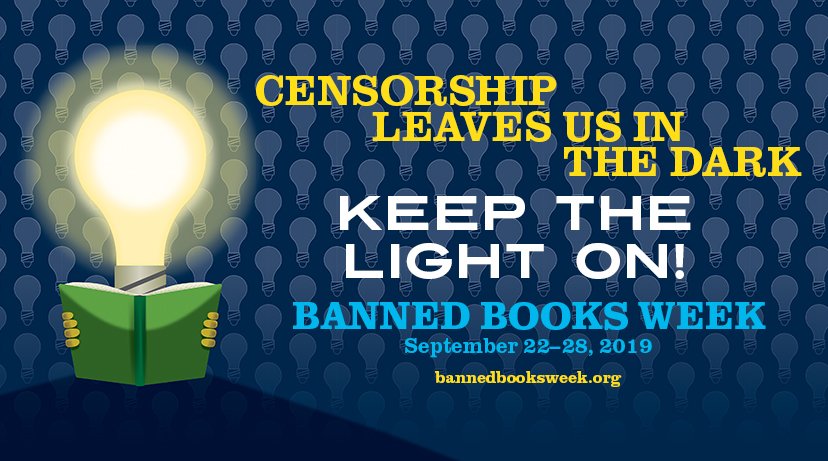Sep
24

Posted by karencoghlan on September 24th, 2019
Posted in: Blog
Tags: censorship, Health Literacy, open science, public libraries, science librarians

This week, September 22, through September 28, is Banned Books Week. It is an annual event celebrating the freedom to not be in the dark and read. It brings attention to both current and historical attempts to censor books in libraries and schools. According to the American Library Association (ALA), banned books week was launched in the early 80’s around the time of the 1982 Supreme Court Case, Island Trees School District v Pico, which ruled that school officials can’t ban books in libraries simply because of their content. Libraries including the NLM regularly champion intellectual freedom because it enables librarians to fulfill their primary mission of providing and preserving information. As William Wallace Young said in an interview with Martin Kauffman, “If you want a book to be very popular, you just get it banned, right?” The NLM Digital Collections provides access to historical books, photographs, images, online transcripts and maps, some of which have been banned or censored in the past.
This week during Banned Books Week, celebrate and fight for your right to access information. There are free promotional tools and event listings at bannedbooksweek.org. Looking at the current listing of challenged books can be quite a surprise when you recognize some current titles, that are also movies, are on the list. In addition, the ALA is hosting free webinars and downloads for display ideas, tips on how to get involved, some suggestions include joining a Banned Books Week Q&A, donate to the The LeRoy C. Merritt Humanitarian Fund also known as the Merritt Fund or the Comic Book Legal Relief Fund, or participate in the National Read-Out.
What Banned Books Week has shown me is that censorship can happen anywhere, any time. It is wise to be proactive, and remember to incorporate lessons learned from banned book week throughout the year. If you are a Librarian, when purchasing make sure there are policies in place before the book is challenged. Train the people at the circulation desk on procedures if a book is challenged, maybe have a checklist to follow if a book is challenged.
If a book is challenged, you are not alone. There are resources available that may be helpful such such as the ALA Office for Intellectual freedom which provides confidential support to anyone undergoing a challenge or ban. This support can come in the form of letters, book reviews, resources, talking points or emotional support. People can report censorship online, with Challenge Reporting or by calling 1-800-545-2433, ext. 4226 or or email oif@ala.org. Censorship and book challenges are difficult but if you face this challenge know there are resources available to you. Awareness is key, so we are not left in the dark and can keep our freedom to read.
Resources: